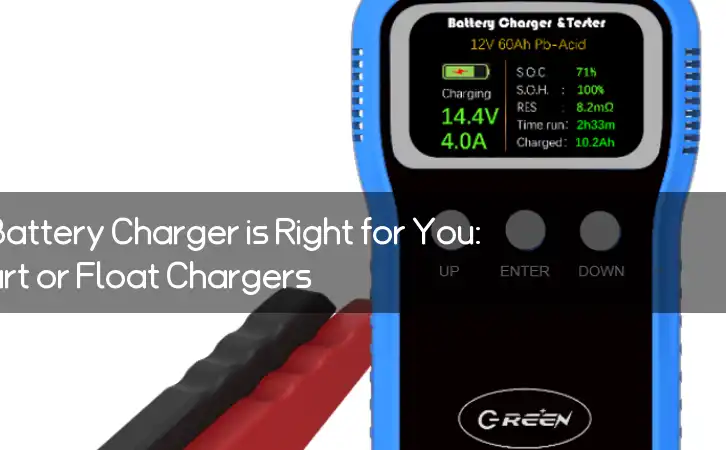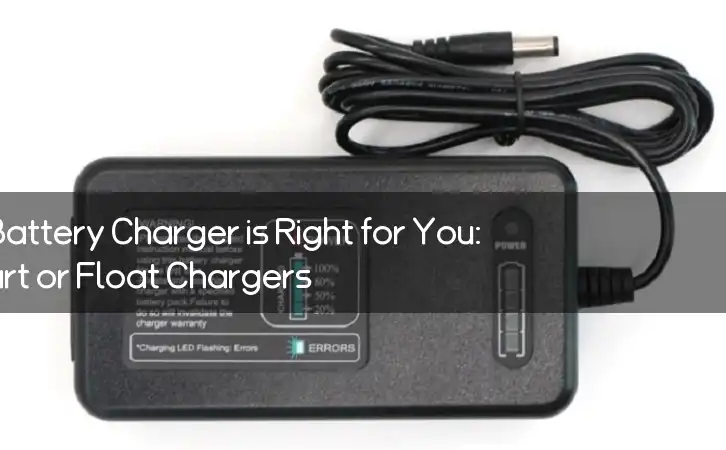Information Center
Which Battery Charger is Right for You: Smart or Float Chargers?
Published:2023-04-10 22:59:59 Author:Green WCND Views:63When it comes to battery chargers, there are two main types: smart chargers and float chargers. Both of these types of chargers have their own advantages and disadvantages, and which one you choose will depend on your specific needs.

Smart chargers are the more advanced of the two types of chargers. These types of chargers have an internal microprocessor that constantly monitors the battery’s charge status and adjusts the charging output accordingly. This means that smart chargers can be left connected to the battery for an extended period of time without causing any damage. Additionally, many smart chargers have safety features built-in, such as overcharge protection and short circuit protection, which help to further protect the battery from damage.

The benefits of smart chargers do come at a cost, of course – they tend to be more expensive than float chargers. However, for those who have more expensive and high-tech batteries (such as those found in electric vehicles or solar panels), the extra investment is often worth it. Smart chargers also tend to be more efficient than float chargers, which can save you money on your electricity bill over time.
Float chargers, on the other hand, are a more basic type of battery charger. These chargers apply a constant voltage to the battery, which slowly charges the battery over time. While this method of charging is less efficient than smart chargers (meaning they may not fully charge the battery), float chargers are generally less expensive and more straightforward to use.
Float chargers are best suited to batteries that don’t require regular charging, such as backup batteries for power tools or emergency lighting. They can also be used to keep the battery topped up during periods of inactivity, such as during the winter months when a boat or RV might be in storage.
One of the biggest dangers of float chargers is that they can overcharge a battery, which can lead to damage or even explosions in extreme cases. As such, it’s important to only use float chargers on batteries that are in good condition and to take care when leaving the charger connected for extended periods of time.
In conclusion, smart chargers and float chargers are the two main types of battery chargers on the market today. While both have their own advantages and disadvantages, the type that’s best for you will depend on your specific needs and the type of battery that you’re charging. Be sure to talk to a professional or do your research before purchasing a charger to ensure that you’re getting the right one for your needs.
Power Adapter Design and Customization Guide for Portable Electric KettlesI. Common Design Types for Portable Electric Kettle Power AdaptersPortable electric ke···
I. Common Design Types of Power Adapters External Independent Type (Most Common) Design: A standalone adapter (e.g., "black brick") connected to the p···
Handheld Vacuum Cleaner Power Adapter Selection GuideIntroductionHandheld vacuum cleaners have become a mainstream tool for household cleaning due to their port···
Drill Power Adapter Selection Guide.drill-container { font-family: Arial, sans-serif; line-height: 1.6; max-width: 800px; margin: 0 auto; padding: 20px; } .dril···





